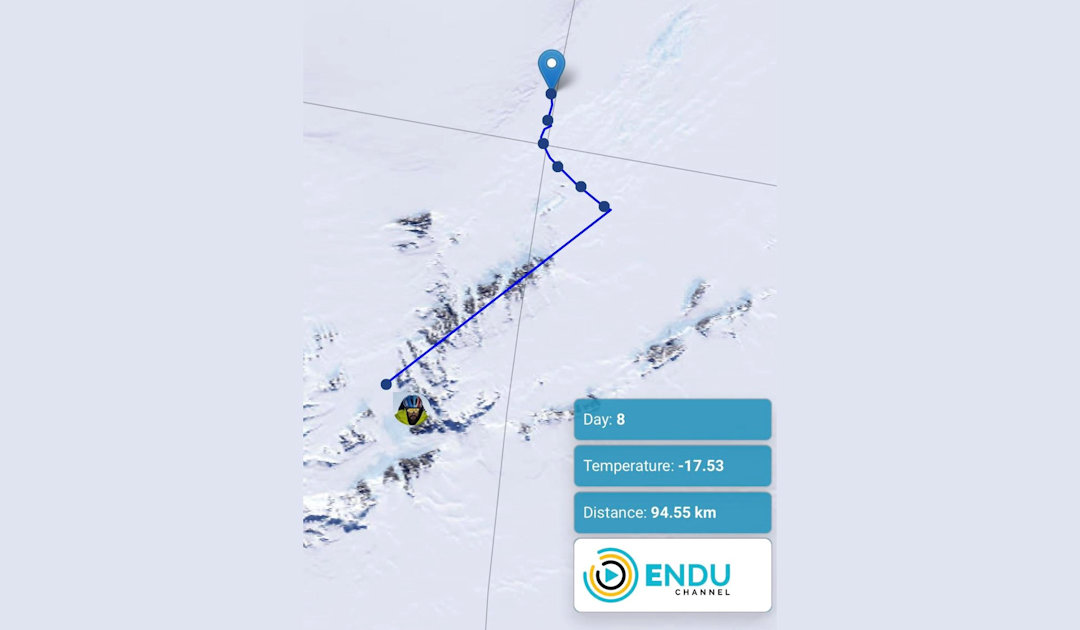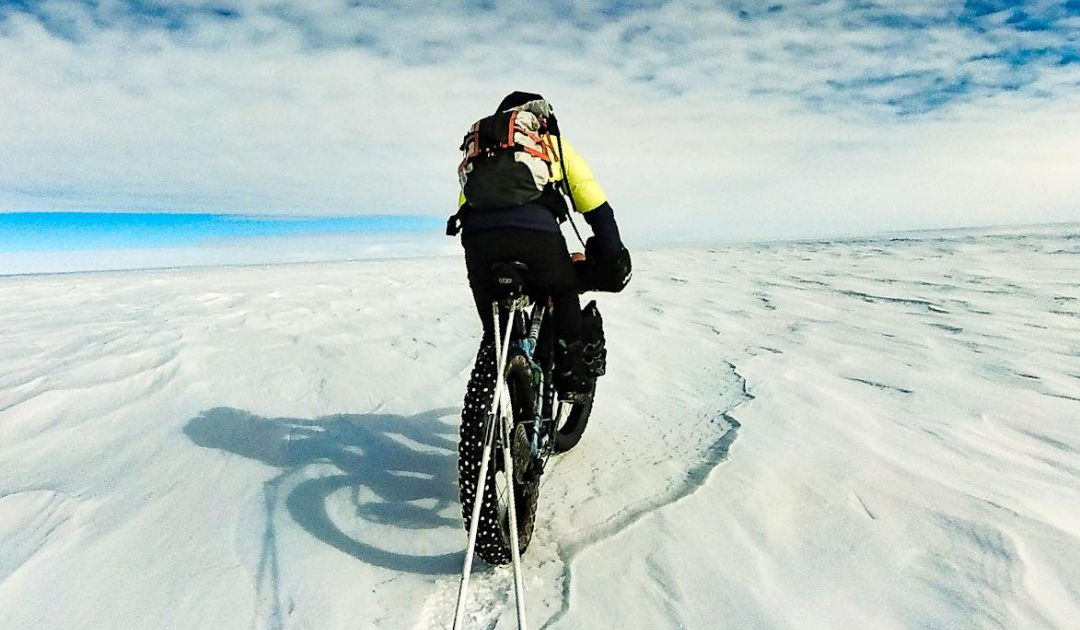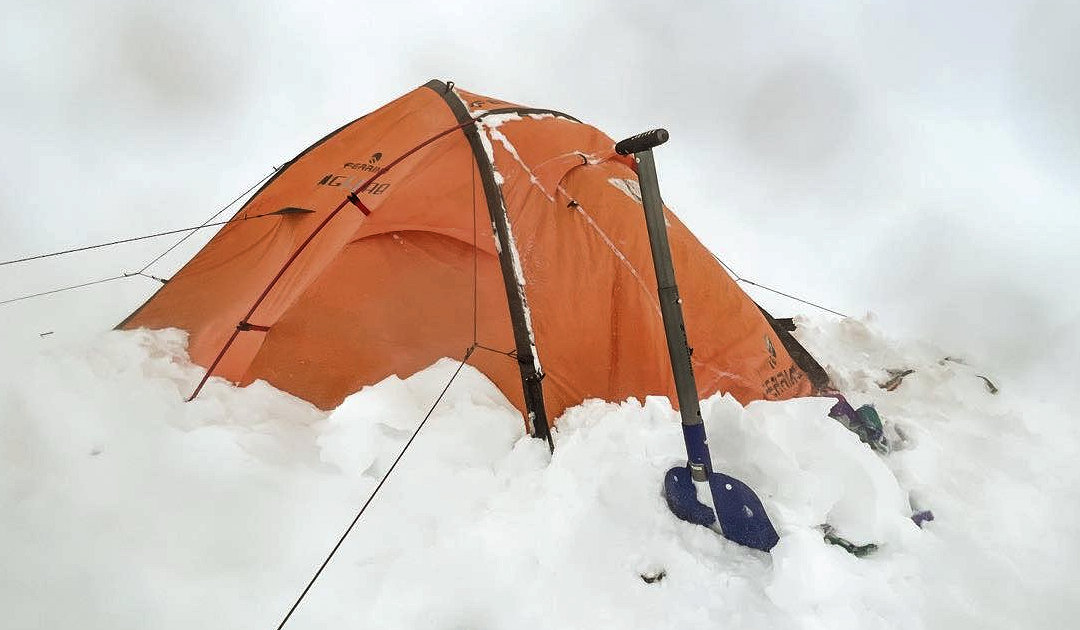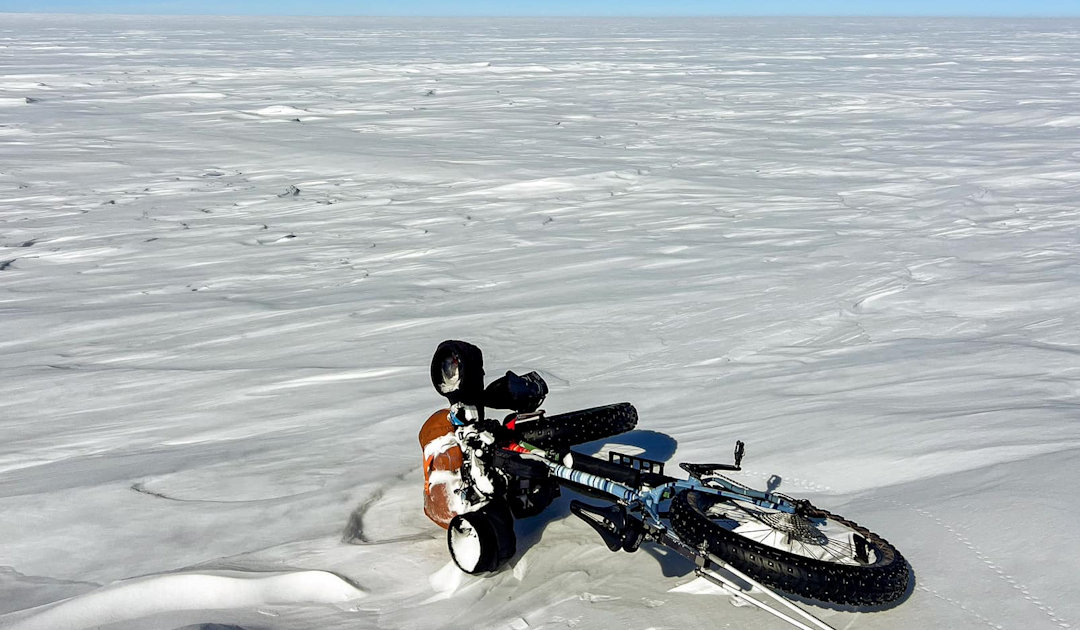
Expeditions to Antarctica are difficult even in modern times, no matter what form they take, and depend on many factors. Besides the technical aspects of material and equipment, it is also the climatic conditions and the physical and menatl attitude of the expedition members that determine the success or failure of an expedition. This is once again evident in the case of Italian extreme athlete Omar Di Felice.
The dream is over, at least for the moment. Omar Di Felice abandoned his record attempt to cycle from the Weddell Sea via the South Pole to the Ross Sea. Omar Di Felice had been on the road in Antarctica on his bicycle for just eight days and just under 95 kilometers. Of these, the Italian extreme sportsman had to spend 3 days in his tent because a heavy storm with wind speeds of over 110 km/h had pinned him down. Before that, he had to battle more difficult starting conditions than anticipated, which reduced his planned daily performance. In the end, serious personal problems also followed, so that Omar Di Felice felt unable to continue with the record attempt and gave up with a heavy heart in order not to endanger himself further. He is now back at the Union Glacier Camp of the expedition operator Antarctic Logistics and Expeditions.


The record attempt of the Italian was ill-fated from the beginning in Punta Arenas. First, days of bad weather prevented the transport flight from Punta Arenas, Chile, to the expedition camp at Union Glacier, where he arrived only on November 22. There, it took several more days due to difficult weather conditions before Omar Di Felice could be transported by a small transport plane to his starting point at Hercules Inlet Glacier. There, on November 27, he started his record attempt. His route was traceable thanks to satellite tracking and communication with his team in Italy was also guaranteed thanks to satellite phone. At the beginning, there was still euphoria and confidence among all those involved. But the streak of bad luck did not stop: strong winds in the region hindered efficient progress, often Omar had to push and pull his bike and the fully loaded sled instead of riding. Already on the third day, very strong winds forced the athlete to stay in his tent and shovel snow instead of riding, so that his tent would not be buried under snowdrifts. To make matters worse, the news of the tragic death of his friend Davide Rebellin did not help to support his state mentally. The bad weather persisted for another 2 days before Omar was able to resume cycling on December 2.



The next two days saw the athlete barely cover any miles. At the end of the seventh day, his entry on Facebook, where his progress had been published, showed that on the one hand he was already morally/mentally battered, but still had expressed the will: “The beginning, more complicated than expected, affects my morale rather than the body. It is a test of mental endurance that takes away precious energies. But as long as I can, I continue inch by inch.” In the end, however, mental condition probably defeated Omar Di Felice’s body. His communications team releases the news on December 4 that “Omar’s adventure stopped a few hours ago due to a serious personal problem.” Thanks to the satellite phone, he was able to be brought back to Union Glacier Camp with his equipment from his last position. From there, he posted a very personal message to all his fans and followers this morning, addressing the personal issues that had plagued him in the days before.

The record attempt that Omar Di Felice wanted to make was part of his campaign “Bike to 1.5°C”, in which he wants to encourage society and especially politicians to do more for climate protection and to limit the increase in global warming to 1.5°C. Already at the beginning of the year, the Italian athlete had made headlines with his “Arctic World Tour”, during which he had traveled in the various Arctic regions from Russia to Alaska. On the approximately 1,700 kilometers that the extreme cyclist had planned in Antarctica, he not only wanted to master the sporting challenge, but also to collect data to show a possible influence of warming on the region. But in the end it was not the fight against wind, temperature or snow that Omar Di Felice lost, but the fight with himself, which no one but him can fight for him. His failure shows how important mental state is in a business like this. Hopefully, Omar Di Felice will win his inner fights so that he can resume the fight against global warming.
Dr Michael Wenger, PolarJournal
More on the topic





